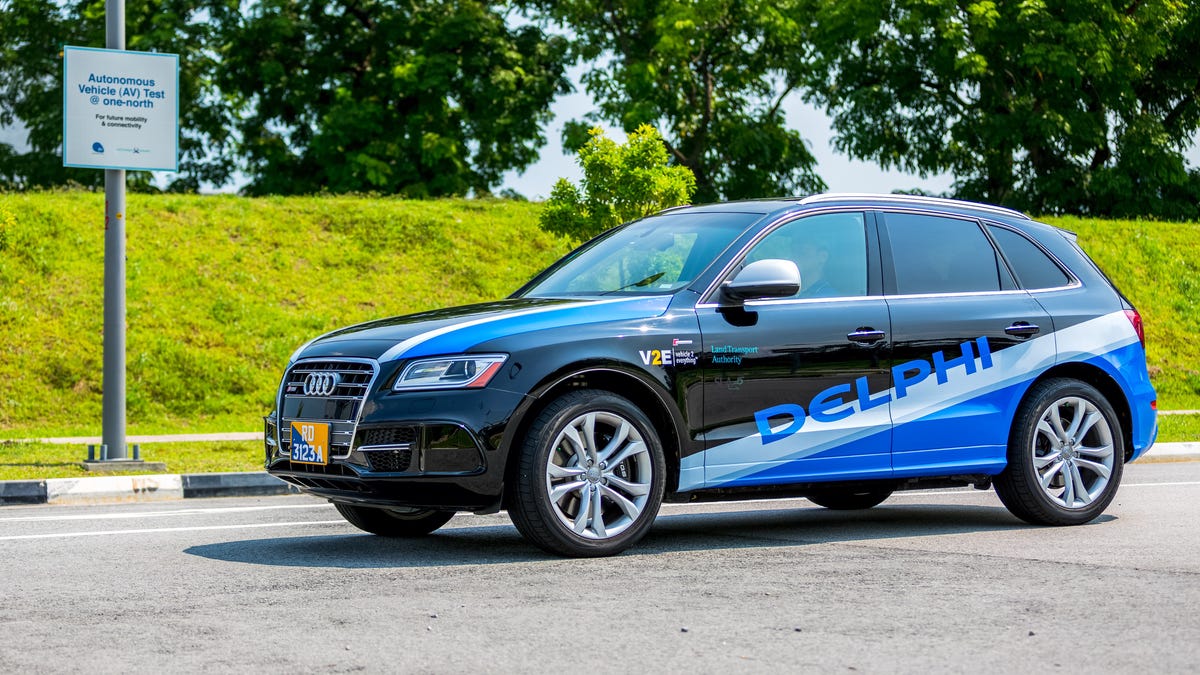Delphi begins testing first autonomous car service in Singapore
The automotive supplier accelerates development and validation of its self-driving car tech in the island nation.

Delphi wants to give you a lift to your metro station. The automotive supplier made headlines earlier this year when it sent one of its self-driving research vehicles coast-to-coast -- both a test and a publicity stunt. The event appears to have paid off, as today it announces it's been awarded a contract by Singapore's Land Transport Authority to spearhead an automated mobility pilot program.
Glen DeVos, vice president of Delphi's services business unit, says the trip caught the attention of Singapore government officials who had been working on ways to make better use of the southeast Asian country's mass-transit system, and alleviate traffic. The 24-hour ride-on-demand service will shuttle people from their homes or offices to mass-transit stations, helping to solve what are known as first-mile/last-mile concerns.
The pilot program will run on a 4-mile loop in the island nation's One-North area along three fixed routes. Initially, Delphi will begin testing using six Audi SQ5s outfitted with all the usual self-driving vehicle equipment such as camera, radar, Lidar sensors and computers. DeVos says Delphi is in discussions with a number of automakers about vehicles, and that having the full support of a manufacturer is important for the project.
Delphi's autonomous Audi SQ5.
Eventually, Delphi foresees the development of a purpose-built vehicle without a steering wheel, designed to be easy to get in and out of.
On Delphi's part, it's looking at the project to speed up development of autonomous vehicle tech, perform real-world testing and allow the company to demonstrate its complete eco system of self-driving car capabilities.
The project will also allow for the refinement of the user experience. In the beginning, vehicles will have "safety drivers" to take over in the event of an emergency, and also observe how passengers are enjoying the service experience. Near the tail end of the three-year pilot program in 2019, Delphi says vehicles will not have a safety driver, steering wheel or pedals. The goal is to have an operational service by 2022.
Delphi will determine the riders who get to participate in the program, but acknowledges that at some point during the pilot regular commuters will have to experience it.
Besides moving people, DeVos says Delphi will study additional uses for the fleet, such as helping with errands by delivering dry cleaning or groceries.
Knowing that the needs of Singaporeans may differ from, say, New Yorkers or Londoners, Delphi will also announce additional pilot locations for the US and Europe to get a better idea of each region's particular needs. Exact locations will be revealed over the next year.

